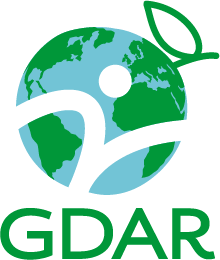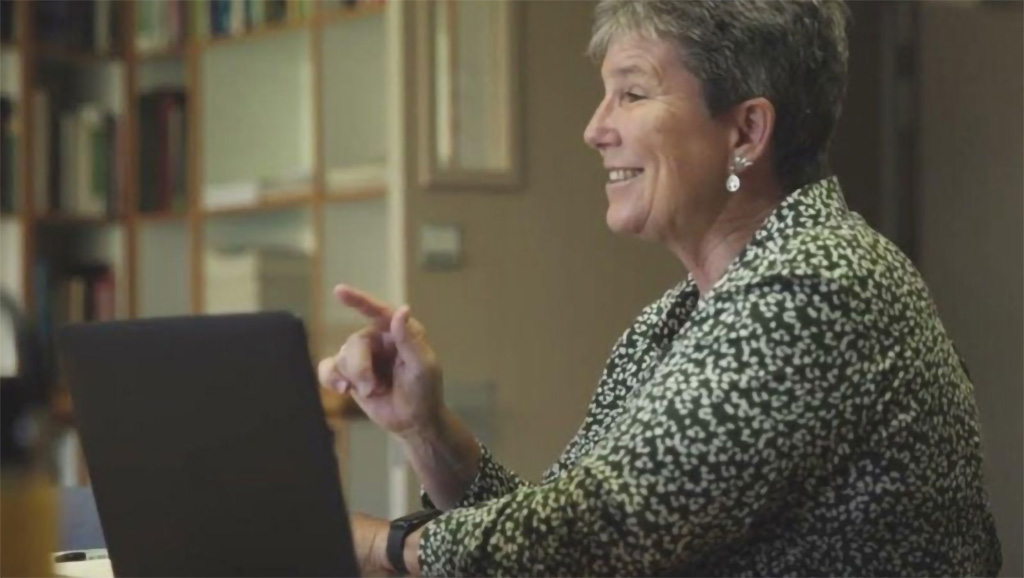This blog is the second in a series of captivating narratives and insights from experienced researchers working in LMICs with at least 15 years of impact. Our Early Career Researchers (ECRs) delve into the inception of their career and personal journeys, and the experiences and exposures that shaped their trajectories.
By Feyisayo A. Wayas on behalf of the ECR team.
The career journey of Estelle (Vicki) Lambert, Professor Emeritus
Known as Vicki to her colleagues and friends, Professor Estelle Lambert is an outstanding researcher, a Principal Investigator in the GDAR Network, a Professor Emeritus, a Senior Research Scholar, and the recipient of the 2024 South African Medical Research Council (SAMRC) Platinum Medal Lifetime Achievement Award as an outstanding scientist. Her research focus revolves around solving the wicked problems of obesity, food security and physical activity, behaviour change, community-based interventions, and citizen science. And Vicki’s favourite titles are that of wife, mother, grandmother, and friend!
While reading about these achievements may make their attainment seem easy, straightforward, and impressive, the journey has been far from smooth. Marked by setbacks, unexpected twists, and challenging turns, Vicki has shared how her career journey and her personal life are interwoven.
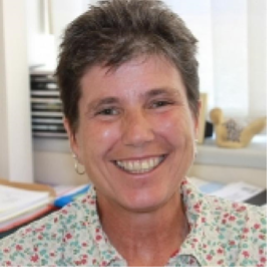
The twists and turns of a researcher’s career
Vicki was born into an average American family with a role model mother and a lovely but alcoholic, often unemployed father. In her teenage years, Vicki developed a passion for horse riding, became pregnant, had to give up her child for adoption, and worked part-time jobs to make ends meet while striving for academic excellence. She attended a liberal arts university and studied exercise physiology, got her first professional job as an exercise technician, published her first paper on sickle cell trait anaemia and exercise tolerance. She needed more professional training to follow her passion for research, so she started her Master’s training in exercise science where the value of a mentor became apparent.
During this period, she ran her first marathon and met her life partner, Prof Mike Lambert, a South African studying for his MSc in the United States. Vicki and Mike married, and moved to his home of South Africa, which meant making the decision to re-start her doctoral journey in her new homeland. Despite taking longer to complete than expected, Vicki achieved her PhD with no dedicated funding, being largely self-supervised, working part-time jobs, and starting a family. It was during this time that she became involved in various collaborations and began to recognise the importance of publishing peer-reviewed manuscripts.
As an early career researcher, Vicki had her first major partnership, applied for her first major grant funding (Nestle Foundation), her first novel research finding, and her first opportunity to act as a consultant to the World Health Organisation. The latter event was serendipitous and occurred because her research unit head sent her in his place since he was unable to attend. It was this experience that she defines as the turning point in her career, moving from largely laboratory-based research to a focus on public health and physical activity.
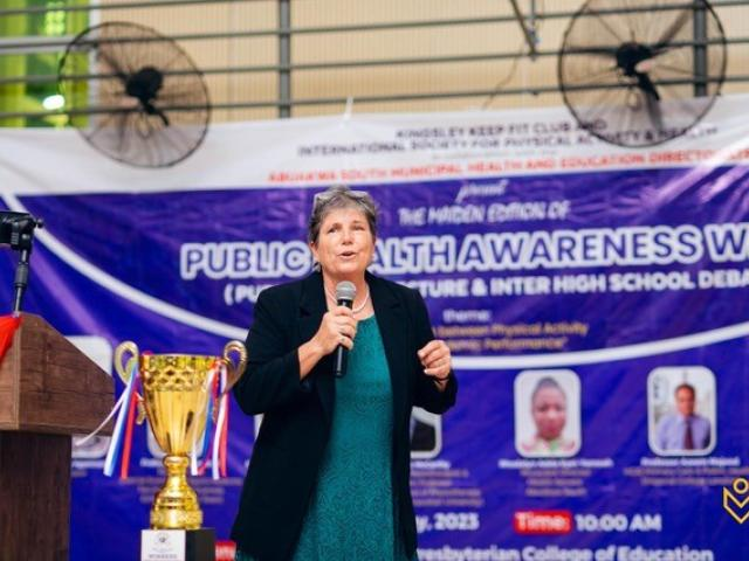
It’s a bumpy ride: not giving up and building networks
Moving into her mid-career, Vicki worked as part of the SAMRC Research Unit for Exercise Science and Sports Medicine during its entire tenure of 25 years. During her time there, she wrote several large grant proposals on behalf of the head of her unit, and realised that, “as part of a team you may not always individually receive credit for your efforts.” This insight helped Vicki to inform her own philosophy of servant leadership later in her career. During this time, she began to branch out into other public health-related research areas with a focus on cities, health equity, food and physical activity environments, obesity, food insecurity and social anthropology. Her work was majorly influenced by her late brother, a professor who worked at the University of Antioquia in Colombia. Notably, during this mid-career stage, she and her brother co-wrote an article on a novel construct, the “choice transition”. It took more than six submissions, before the article was finally accepted for publication. With each rejection the manuscript improved, and together they found a common “voice”.
It was also during this time that she worked hard at promoting physical activity for health; developing the field of research in physical activity and health with a specific focus on the Global South. Vicki’s work within this field involved leveraging existing networks, especially the Centers for Disease Control in the USA and the International Union for Health Promotion and Education. Together with colleagues, she initiated and led the African Physical Activity Network from 2008-2013, before handing over to Prof. Prista of Mozambique.
Outputs, collaborations and visibility are key for academic achievements
Vicki has served as a consultant in numerous international organisations such as the World Health Organisation. She also pioneered the start of the Research Centre for Health and Physical Activity, Lifestyle and Sports (HPALS) at the University of Cape Town and was the Director of the centre until her retirement at the end of 2023. She is a South African NRF B1-rated scientist, with an H-index of 89 (Google Scholar) and her work has been cited more than 40,000 times. From 2020-2023 Lambert made the Clarivate Highly Cited list, being in the top 1% of her field. To date, she has supervised or co-supervised 20 PhDs and more than 10 Masters students. Her research focus revolves around solving the wicked problems of obesity, food security and physical activity, behaviour change, community-based interventions, and citizen science.
As a senior-level researcher, Vicki has attained a leadership role at the University of Cape Town while securing and maintaining research funding; ensuring strong outputs and research visibility, building the capacity of junior researchers, maintaining strong collaborations with relevant and impactful research networks and researchers; and became one of the most highly cited South African researchers.
When receiving the MRC Lifetime Achievement award, Vicki said, “the journey represents the combined work of a large community of mostly Global South researchers, focused on physical activity, obesity, food security and health equity. We do not lack research capacity in this area in our region, but we do lack prioritisation and adequate funding by government and other agencies. The benefits of this area of research reach well beyond the health sector and speak directly to at least 13 of the 17 Sustainable Development Goals and planetary health.”
“Your journey cannot be siloed.”
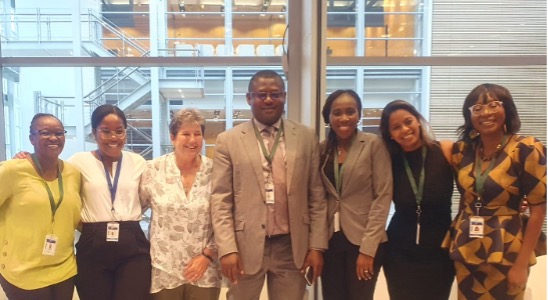
How to navigate academia: insights from Professor Estelle (Vicki) Lambert
• Challenges faced in early life do not necessarily determine your future.
• Good mentors are important: “hitch your wagon” to an established researcher, then let go at the right time when you have a niche area, funding, and their backing.
• Be generous in research and collaboration: “We” not “Me”.
• Collaborating provides a “gearing mechanism” for experience, training, and outputs.
• Where your name is positioned in a publication is important – be first, second or last.
• Finish what you start: under-promise and over-deliver.
• Be opportunistic and find what is unique about your setting, use this as a platform for research.
• Working as a team “Moles, Mutts and Mappers“- which are you? A mole is a researcher who focuses on expertise in only a particular subject. A mutt is a researcher who piggybacks on the work of the moles to create new ideas often driven by relevant questions and practical and applied outcomes. A mapper is a researcher who can see the bigger picture, bringing together the work of various contributors to create meaningful and impactful results.
• Discuss roles, authorship, and accountabilities before beginning a project of manuscript.
• Write, write, write, write (grants, papers, policy briefs)- then write some more.
• Make yourself indispensable, find a mentor, find a champion, be a champion.
